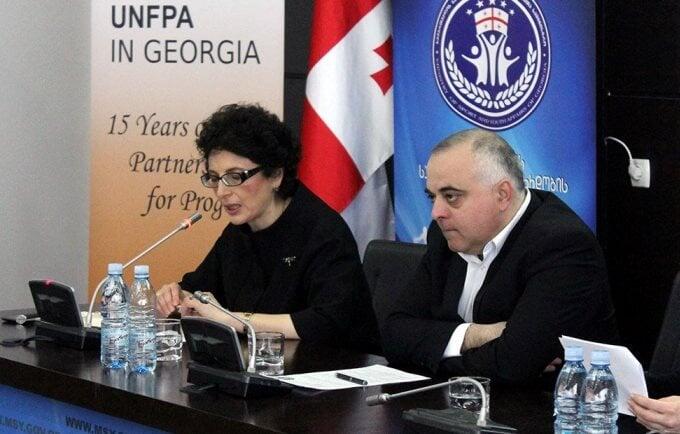TBILISI – UNFPA’s Assistant Representative in Georgia, Lela Bakradze, welcomed the adoption of a new National Youth Policy by the Georgian Government on 28 March 2014.
“The policy fully reflects the Government’s commitment to ensuring that young people have access to youth-friendly sexual and reproductive health services and information,” said Bakradze, adding that sexual and reproductive health issues will be integrated both in formal education as well as informal channels such as peer education programmes.
She stressed that the new policy reflects the principles adopted by the 1994 International Conference on Population and Development.
“The National Youth Policy clearly defines the Government’s commitment and vision towards youth development, including youth-related sexual and reproductive health and reproductive rights issues,” said Levan Kipiani, Georgia’s Minister of Sport and Youth Affairs.
He added that the policy will help enabling young people to fulfil their potential and to improve their awareness about reproductive health and rights through formal and informal education, and to increase their access to quality sexual and reproductive health services.”
UNFPA, in partnership with UNICEF, supported the Ministry of Sport and Youth Affairs of Georgia in developing the policy.
The Fund’s Georgia office helped prepare the ground for the new policy by supporting research on young people’s sexual and reproductive health, policy dialogue among parliamentarians and youth leaders, and youth participation in the policy development process. UNFPA also contributed to integrating reproductive health and rights in Georgia’s “Healthy and Harmonious Education” concept.
“We helped in creating a favourable environment and generating the political will for making youth development a priority in Georgia,” said Bakradze.
“But it was the Government’s leadership and strong national ownership that made this a success.”
As a next step, UNFPA will support the Ministry of Sport and Youth Affairs in finalising a national action plan to implement the policy.



